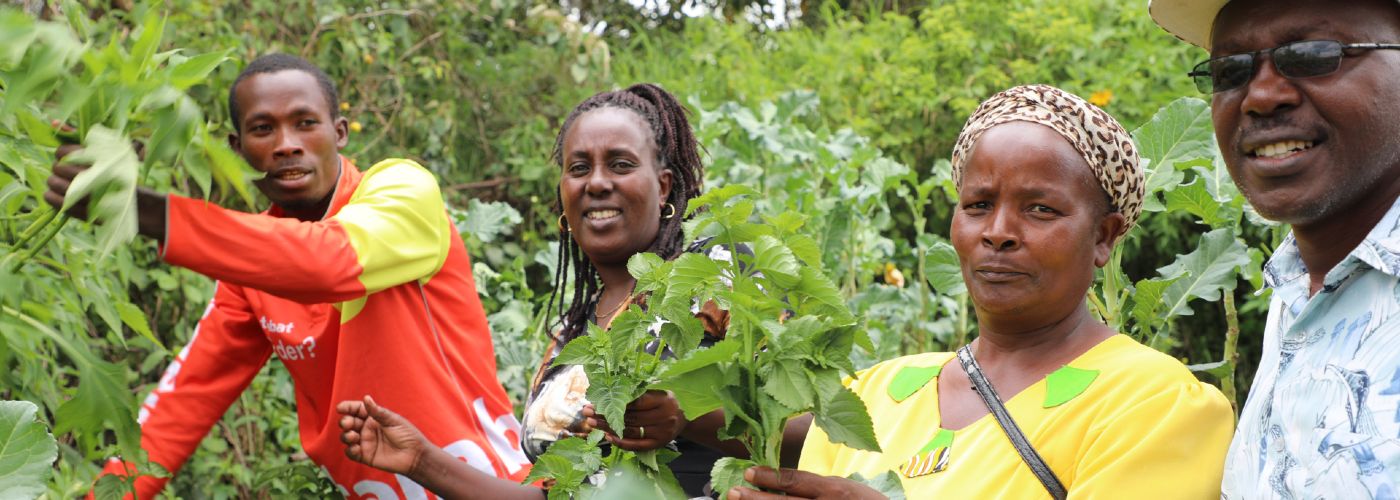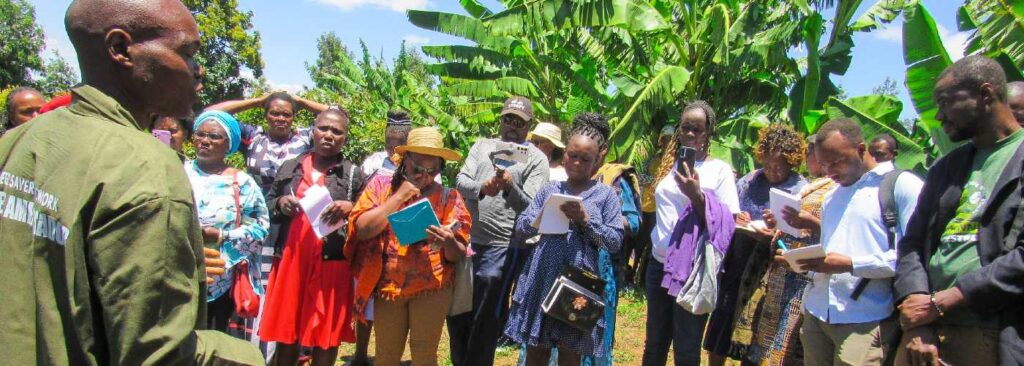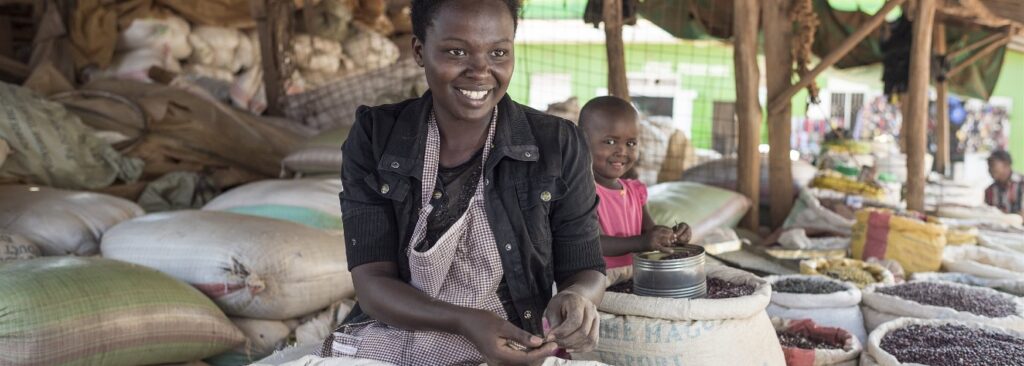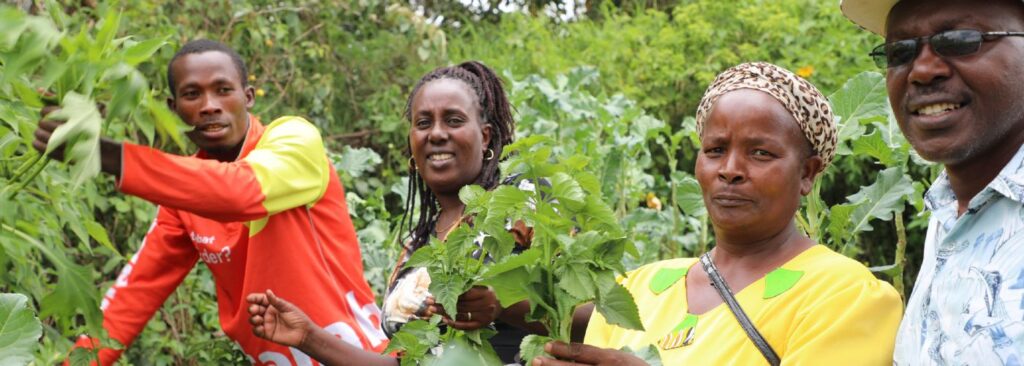Harvesting Equality: a groundbreaking call for change in African agriculture
May 7, 2025
By Cynthia Omondi
Today I’m headed for Makongo Village, some hundred kilometers northwest of Nairobi. After an hour or two of punishment on the rocky, muddy roads, I step out to stretch, gazing at the undulating green hills — a testament to hard, unseen labor. Women in colorful wraps are bent over their fields, tending to beans, maize, and potatoes, their laughter mingling with the chirping of birds.
Then walking through Makongo, it’s again striking how many of the hands tilling the earth are women’s. Yet, I wonder, how many of these women own the land they work? How many have a say in the agricultural and climate policies or the land laws shaping their livelihoods?
The bigger picture: why this matters
These are not idle questions. According to Harvesting Equality: Gender, Governance, Stewardship, and Decolonial Futures in Kenyan Agriculture — a groundbreaking new book from Hivos in partnership with Kabarak University Press, SeedChange, and Global Affairs Canada — Kenyan women provide up to 65% of agricultural labor. Yet they remain locked out of decision-making spaces, are denied secure land rights, and are sidelined in access to finance, technology, and training.
The book unpacks the deep historical roots of this imbalance, tracing them back to colonial policies that dispossessed communities, formalized male land ownership, and pushed women to the agricultural margins. But it doesn’t stop at critique. It draws on feminist, ecofeminist, and decolonial frameworks to champion women as agents of change, recognizing their unique knowledge systems and their crucial role in building climate-resilient, sustainable food systems.
As one quote in the book provocatively asks:
“Can we build a just agricultural future while the very people feeding the nation remain excluded and invisible?”
Harvesting Equality is more than a scholarly work; it’s a call to action. It invites policymakers, researchers, and global citizens alike to rethink how we value women’s labor, land, and leadership. Through compelling research, vivid case studies, and the voices of women from Baringo, Kitui, Nakuru, and beyond, the book calls for a reimagined agricultural future — one where women’s indigenous knowledge is recognized, their land rights secured, and their contributions fairly rewarded.
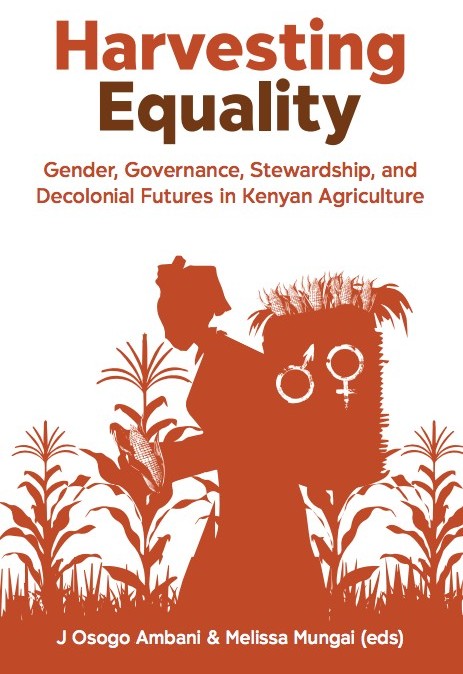
For anyone wanting to dive deeper — to understand the systemic barriers and the bold pathways forward — the full book is available free of charge here.

